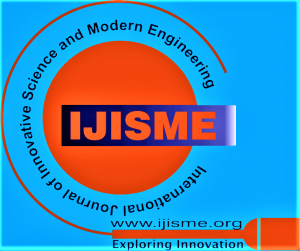![]()
Current Electronics Curriculum at Two-Year Engineering-Technology Programs: Academic Preparation vs. Industry Expectations
ASM Delowar Hossain1, Zory Marantz2, Djafar Mynbaev3
1ASM Delowar Hossain, Department of Electrical and Telecommunications Engineering Technology, New York City College of Technology of the City University of New York, 300 Jay Street, Brooklyn, New York.
2Zory Marantz, Department of Electrical and Telecommunications Engineering Technology, New York City College of Technology of the City University of New York, 300 Jay Street, Brooklyn, New York.
3Djafar Mynbaev, Department of Electrical and Telecommunications Engineering Technology, New York City College of Technology of the City University of New York, 300 Jay Street, Brooklyn, New York.
Manuscript received on October 03, 2014. | Revised Manuscript received on October 09, 2014. | Manuscript published on October 15, 2014. | PP: 26-30 | Volume-2 Issue-11, October 2014. | Retrieval Number: K07311021114/2014©BEIESP
Open Access | Ethics and Policies | Cite | Mendeley
© The Authors. Published By: Blue Eyes Intelligence Engineering and Sciences Publication (BEIESP). This is an open access article under the CC BY-NC-ND license (http://creativecommons.org/licenses/by-nc-nd/4.0/)
Abstract: It is a challenge to teach electronics in career-oriented two-year programs due to the practical knowledge that must be taught within a limited amount of time. The challenge stems from the balance that must be achieved between theory and practice. There is a huge gap between the fundamentals of electronics that we are still teaching in traditional electronics courses and the real-world electronics used for building modern devices and gadgets. This survey investigates whether it is possible to teach modern electronics for modern industry, particularly in two-year programs. In an attempt to find a solution, various sources are investigated in academia, industry, and professional societies. The goal is to begin a productive discourse to find a solution to this dilemma.
Keywords: Curriculum Development, Modern Engineering Education, Pedagogy.
